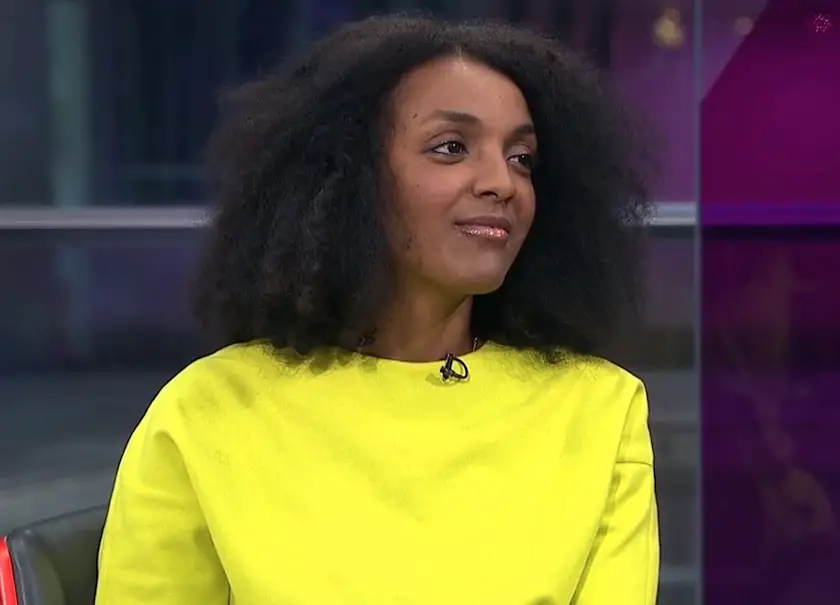| Personal Information Summary | |
|---|---|
| Name | Nesrine Malik |
| Age / How old / Birthday / Date of Birth / DOB | Born on October 24, 1975. As of 2025, she is around 50 years old. |
| Wedding & Marriage / Husband / Engaged / Partner | No confirmed information is available. |
| What award did Nesrine Malik receive in 2021? | Malik was awarded the inaugural Robert B. Silvers Prize for Journalism. |
| Children / No. of Kids | None |
| Ethnicity / Origin / Heritage / Race | Middle-Eastern |
| Nationality | British-Sudanese |
Wiki Biography / Profile Background
Introduction :
- Nesrine Malik is a columnist, feature writer and journalist originally from Sudan.
- Passionate and outspoken, Malik is known for sharing her thoughts on various social, economic and political issues.
Personal Life, Parents and Family Details :
- Nesrine was born in Khartoum, Sudan to Sudanese parents. She has three sisters.
- Malik’s parents left Sudan and moved around to Kenya and Egypt before settling in London for some time.
- When Nesrine was a bit older, her family left London and moved to Saudi Arabia where she experienced a life very different from the Western culture that she was used to.
- Malik detailed her life in Saudi Arabia in a piece she wrote for The Telegraph, where she was defending Muslim women who wanted to continue wearing niqabs and abayas (full-length face veils and cloaks required for women to wear in Saudi Arabia).
Education : Qualifications, High School & College Info
- Nesrine attended the American University in Cairo and graduated with a Bachelor’s degree before moving on to the University of London where she obtained her Master’s degree.
Career, Job, Salary and Net Worth :
- Nesrine’s current main focus is working for The Guardian as one of their columnists.
- Earlier on during her career, she worked in the financial sector – mainly in private equity for emerging markets. She spent a decade working in finance before deciding to pursue a career in journalism and column writing seriously.
- Since leaving the finance sector, Nesrine began working for various publications as a column writer. She has written for publications such as NPR, The Independent and also The New York Times.
- Currently, Nesrine is attached to The Guardian as a writer, journalist and columnist. She focuses mainly on topics surrounding issues such as Islamophobia, integration and general British politics.
- Nesrine also runs several Foreign Policy dispatches and columns focused on Sudan and in particular, Sudanese politics.
- In 2016, The Guardian ran a series called the “Web We Want” which was held at the British Parliament and aimed at fighting online abuse and the effect it has on upcoming writers and journalists. Malik was chosen to be one of The Guardian’s 3 columnists who were featured as part of the series.
- Malik is also not afraid to share her own experiences as a Muslim living in modern society. She has written several articles focused on social issues in Arabic countries & Muslim culture and the challenges they face in the 21st Century. These pieces are featured in various publications such as Common Dreams NewsCenter and The Telegraph.
- A new book by Malik, We Need New Stories: Challenging the Toxic Myths Behind Our Age of Discontent, was published in 2019. The South African Sunday Times described this book as an examination of and deciphering of falsehoods that society has accepted as true.
Awards and Trivia :
- In 2017, Nesrine was nominated at the Diversity in Media Awards as ‘Journalist/Writer of the Year’ and at the annual Comment Awards for ‘Diversity and Society Commentator of the Year’.
- She has served one of BBC Dateline London’s contributing panelists.
Body Figure / Physical Info
Measurements :
- Eye Colour : Brown
- Haircut / Hair Colour : Black
- How tall / Height : No confirmed information is available.
- Feet / Legs / Boots / Shoe Size : No confirmed information is available.
- Pregnant? : Currently, she is not expecting a baby.
- Weight Loss : A few Google queries regarding this, but we couldn’t find anything conclusive on any of her social media.


Dear Ms. Malik,
I was interested in your discussion of Zara Mohammed and Emma Barnett.
I wonder whether Zara Mohammed couldn’t have asked whether if Ms Barnett had become general Secretary of the Board of Deputies of British jews and Zaras was interviewing her, and Zara had asked Emma how many women rabbis the main synagogue in Britain, the United Synagogue had, how she Emma would think of such a question?
Yours faithfully,
Ian Mordant